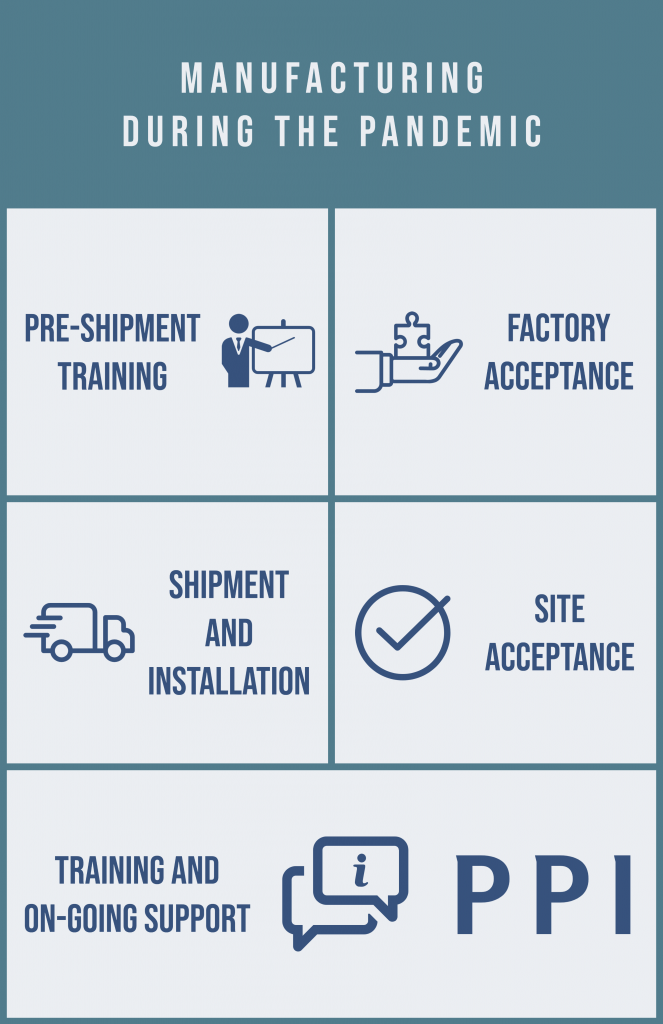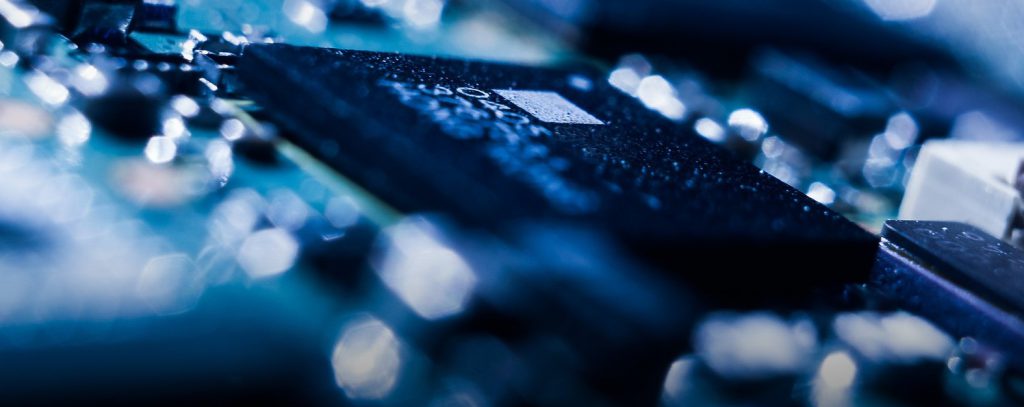Blog
The Benefits of Turn-key Laser Resistor Trimming and Via Drilling Systems During a Pandemic
Updated: Sept 29
So far 2020 and 2021 have turned out to be far from normal years. With no international travel allowed during the pandemic, PPI had to rely on the inherent design, build quality and remote support capability of the RapiTrim and ProVia products to fully support installations of new equipment.
Pre-shipment Training and Preparation
Knowledge of the customer’s requirements has already been gained during processing of their samples in our applications lab. With these jobs as examples, PPI can begin training the customer on job creation, process parameters and system operation. This training is usually performed in small portions (few people want to sit at an online session for more than an hour) so as to be minimally disruptive to the customer’s normal day. Topics can be adapted or repeated as needed, depending on the particular experience of the customer staff involved.
In addition, the Pre-installation Guide is sent out, detailing the dimensions, working space required, and all services that are needed (electrical power, cooling water, compressed air, process exhaust, vacuum, and ethernet connection, depending on the system in question).
Factory Acceptance Test (FAT)
The training is a perfect lead-up to the FAT where the agreed samples will be processed on the customer’s system as proof of capability (beyond all the standard operation tests already performed as part of the system commissioning by PPI engineers).

Results are relayed to the customer for approval (including overnight shipping of the samples). A package containing detailed pictures and video of the system in operation is prepared and send for review. The FAT jobs, including the process parameters, are stored on the system as it ships, along with pre-configured remote connection application such as TeamViewer or VPN software for remote support. Once customer approval is provided, the system is prepared for shipment and crated.

Shipment, Uncrating and Installation
While the system is in shipment, PPI sends out detailed instructions on uncrating, how to remove all the packing materials, unlock the motion stages, and ready the unit for power. Once powered, the PC is turned on and a network connection established. The uncrating and installation by the customers typically takes only a few hours. The PPI support team can then log on to the system remotely and run through a series of health checks to complete the commissioning. All sub-system status and diagnostic information is available through the remote connection. Self calibration routines are run to ensure the system is ready in as-shipped factory state. We have noted during 2020 and 2021 that effects of transport are minimal on PPI equipment, with systems often installed without need for any calibration.
Site Acceptance Test (SAT)
Using the remote connection to assist in real-time, a refresher training on use of the system is performed. This is now much more productive than the initial training since the customer has the machine in front of them and now has context for all the information received previously. The SAT can then be performed and is usually a repeat of the same processing that occurred with the FAT.
Training and On-going Support
Once the SAT is successfully completed, detailed machine operation, calibration, job and process setup training can begin using the remote connection. PPI will provide as many training sessions as required and repeated for as many customer staff (process engineers, operators, maintenance personnel, etc.) that need it. PPI is always available to assist with whatever is required to qualify the system for production and for the customer to feel comfortable operating the system and creating new jobs. After the first month or two PPI has found that the number of customer questions rapidly decreases as customer knowledge and confidence grows. The success of the PPI design and operational philosophy for turn-key systems needs to be experienced to be fully appreciated. This is setting new standards in how systems are designed, built and supported.
www.ppisystems.com
